Journeys Through French Cinema Episode Rating Graph
Sep 2017 - Nov 2017

Sep 2017 - Nov 2017
1.0

Too few ratings to show graph
Too few ratings to show graph
Browse episode ratings trends for Journeys Through French Cinema. Simply click on the interactive rating graph to explore the best and worst of Journeys Through French Cinema's 8 episodes.
Not enough show information to display best episodes.
Not enough show information to display worst episodes.

S1 Ep1
16th Sep 2017
In the first episode of this expansive series, Bertrand Tavernier discusses the directors who have both influenced him personally and impacted French Cinema at large. The journey begins with Jean Grémillon, whose film LE CIEL EST À VOUS (1944) Tavernier first saw at age 17 and was immediately smitten. Still under-appreciated outside of France, Tavernier extols the virtues of Grémillon’s emotional realism and stakes out a place for him in the canon as an unsung master. Next, he surveys the ouevre of Max Ophüls—from his American-made titles THE EXILE and THE RECKLESS MOMENT to beloved classics like LA RONDE and LOLA MONTES - before concluding with a discussion of Henri Decoin, whom Tavernier admires for his feminist-leaning narratives like LA VERITÉ SUR BÉBÉ DONGE and his noteworthy collaborations with composers.

S1 Ep2
23rd Sep 2017
In part two of his discussion of influential filmmakers, Tavernier explores the formal and thematic approaches of Sacha Guitry, Marcel Pagnol, Jacques Tati, and Robert Bresson. The first two directors were introduced to Tavernier through the writings of Francois Truffaut, who championed their style as modernist despite the naysaying of the majority of critics at the time. Tavernier notes the ways in which Guitry’s playful self-reflexivity in particular paved the way for the New Wave. Despite their differences in style and tone, Tavernier is a great admirer of both Bresson and Tati. Using clips from THE DIARY OF A COUNTRY PRIEST, A MAN ESCAPED, MR. HULOT’S HOLIDAY, PLAYTIME and more, he draws parallels between the ways the two filmmakers utilize space in the frame, and manage to balance realism and fable.
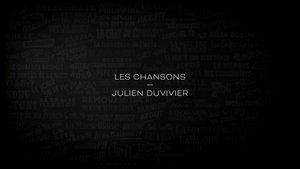
S1 Ep3
30th Sep 2017
Tavernier dissects the importance of music in French Cinema with palpable enthusiasm, highlighting French actors who came from music hall backgrounds (Jean Gabin, Magali Noël, and Jean Gabin, among others), and the oft-overlooked contributions of directors to the process of songwriting itself. Surveying the work of René Clair, Sacha Guitry, Jean Boyer and more, Tavernier treats us to a feast of joyous clips from beloved classics like Agnès Varda’s CLEO FROM 5 TO 7, Louis Malle’s VIVA MARIA!, and Jacques Demy’s THE YOUNG GIRLS OF ROQUEFORT, before honing in to focus on prolific director Julien Duvivier, whom he admires for his austere formal rigor, technical precision, contributions to songwriting, and creative use of sound.
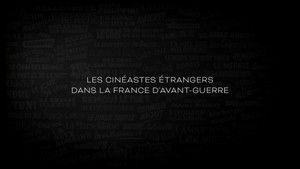
S1 Ep4
7th Oct 2017
Discussing the artistic and political atmosphere during the German occupation, Tavernier explores the ways in which French cinema was enriched by foreign talent as many directors, cinematographers, and technicians forced to leave their native countries for political reasons settled in France. Using a selection of illuminating clips, Tavernier illustrates how the majority of films made during this period upheld a powerful spirit of resistance against the anti-Semitic Vichy regime and dealt with difficult topics head-on. Filmmakers discussed include Viktor Tourjanski, Robert Siodmak, Jean-Paul Le Chanois, Albert Valentin, and André Cayatte.
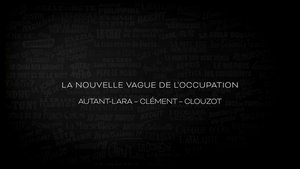
S1 Ep5
14th Oct 2017
As a postscript to his survey of moviemaking in France under German occupation, Tavernier takes a deep dive into how that period of history impacted films by three essential directors—Claude Autant-Lara, René Clément, and Henri-Georges Clouzot—all the way through their post-WWII work. They had completely different métiers, but each can be seen as ahead of his time and as part of a New Wave even before the one formally labeled as such. Availing himself of archival interviews with the subjects and their colleagues, Tavernier marvels at Lara’s proto-feminist narratives (the Woman in White films, Le Mariage de Chiffon); Clément’s brio with performers and framing detail (Forbidden Games, Purple Noon); and Clouzot’s novelistic eye that is loving but never sentimental (The Raven, The Wages of Fear).
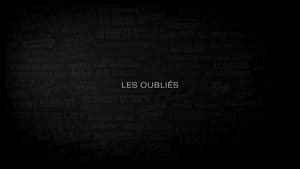
S1 Ep6
21st Oct 2017
In seeking to upgrade his own outmoded perspective on several filmmakers, Tavernier credits critic/programmer Patrick Brion and other writers for early and often championing directors who—decades after their heyday—were finally restored the respect they deserve. Tavernier revisits the oeuvres of Maurice Tourneur, whose crime tales were both bemusedly observational and authentic; Anatole Litvak, who stunned with his dynamic camera choices; Raymond Bernard, who made the groundbreaking 1932 epic Wooden Crosses on real-life WWI battlefields; René Clair, warmly chronicling a now-vanished working-class Paris; and — encoring after Episode 3 — comedy and musical specialist Jean Boyer, whose additional career as lyricist in collaboration with popular composer Georges van Parys make for tuneful rediscoveries.
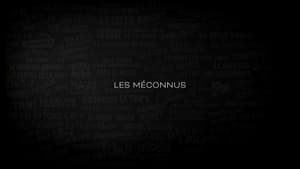
S1 Ep7
28th Oct 2017
Continuing to spotlight names that might be unfamiliar even to ardent film buffs, Tavernier unveils glorious restored footage from one of France’s first-ever color films, 1936’s La Terre qui meurt. The latter’s director, Jean Vallée, is given his due, as are Pierre Chenal, Henri Calef (previously Chenal’s assistant)—and trailblazing women directors including Jacqueline Audry (Olivia), Nelly Kaplan (A Very Curious Girl), and Agnès Varda (Cléo from 5 to 7), whose emergence in the 1950s Tavernier hails as “a thunderclap.” Tavernier is joined by Cannes Film Festival director Thierry Frémaux for an annotated discussion of director Gilles Grangier’s many teamings with iconic actor Jean Gabin that is rich in production anecdotes and histories.
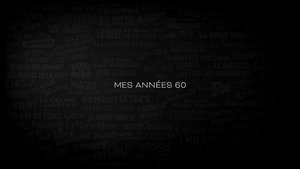
S1 Ep8
4th Nov 2017
Closing out his “exercise in admiration and gratitude” from an even more personal perspective, Tavernier recounts firsthand experiences from his 10 rewarding years as press attaché to and with legendary producer and publicist Pierre Rissient. Through the turbulent 1960s, the duo promoted American filmmakers while also shoring up French ones. Tavernier shares with us epiphanies he had with directors including but not limited to Eric Rohmer (narrating 1962’s La Boulangère de Monceau); the intensely loyal Jacques Deray; the gone-too-soon Philippe Fourastié; Pierre Granier-Deferre, who provided invaluable insight into how to direct actors; and Alain Resnais, whom Tavernier had idolized since seeing Hiroshima mon amour three times at age 18 and was proud to later count as a friend. Concluding the series in style, Tavernier surprises us by excerpting one final film that he cherishes...
Loading...
The first episode of Journeys Through French Cinema aired on September 16, 2017.
The last episode of Journeys Through French Cinema aired on November 04, 2017.
There are 8 episodes of Journeys Through French Cinema.
There is one season of Journeys Through French Cinema.
No.
Journeys Through French Cinema has ended.